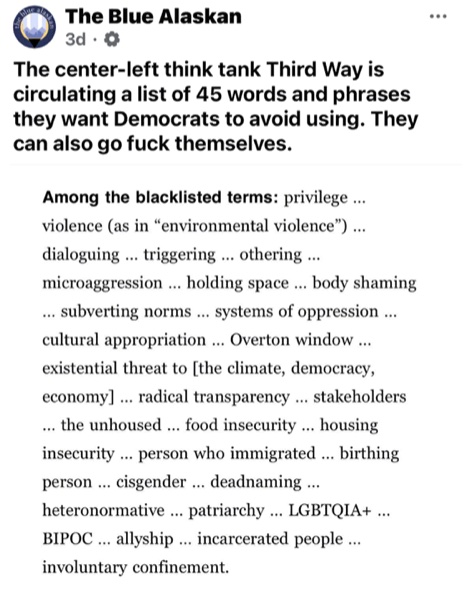The nation’s two largest teachers unions — the American Federation of Teachers (AFT) and the National Education Association (NEA) — have funneled more than $43.5 million since 2022 into a sprawling network of leftwing and far-left political organizations.
A new report details just where that money went. These weren’t small checks to neutral civic groups or nonpartisan charities. The funds flowed directly into some of the most aggressively political outfits in America.
For example, the unions handed over a combined $9.3 million to For Our Future Action Fund, a leftwing super PAC. The NEA alone contributed $9.5 million to the State Engagement Fund, another political powerhouse. Other recipients include MoveOn.org, PEN America, the Sixteen Thirty Fund, the Hopewell Fund, and even the notorious Clinton Foundation.
The Sixteen Thirty Fund has been active in leftist causes and support for leftist candidates in Alaska, funneling $35,000 into “Building a Stronger Anchorage,” a group dedicated to electing Forrest Dunbar as mayor of Anchorage, a failed campaign. This funding was part of a broader controversy involving a Swiss billionaire allegedly channeling millions through the fund to support Democratic candidates, raising concerns about foreign influence in Alaska elections.
Operating under the name “Bristol Bay Action,” the Sixteen Thirty Fund provided $600,000 to promote Sen. Lisa Murkowski and Congresswoman Mary Peltola as the “pro-fish ticket.” This effort included distributing flyers in Anchorage, though it raised questions about potential campaign violations due to Bristol Bay Action’s lack of Federal Election Commission qualification as a multi-candidate group.
The Sixteen Thirty Fund, alongside other Arabella Advisors affiliates like the Hopewell Fund, has supported the Alaska Beacon, a left-leaning news outlet. The Beacon provides content to all major Alaska media outlets, a strategy to shape the state’s news narrative with dark-money-funded journalism that appears neutral.
Here are just a few of the more striking expenditures:
- $1.6 million to House Majority PAC (aligned with congressional Democrats).
- $1.25 million to Senate Majority PAC.
- $1 million+ to Red Wine & Blue, a progressive organizing group.
- Hundreds of thousands to groups like Color of Change, Latino Victory Fund, and MomsRising.
- Contributions to the Trevor Project, Democracy Alliance, and even Politico.
These are not expenditures for classroom supplies or student programs. No textbooks, computers, or free lunches were purchased, but instead, the AFT and NEA are making partisan investments designed to swing elections, wage culture wars, and entrench a progressive agenda.
Both unions frame themselves as advocates for teachers and students, but these filings tell another story: one of massive political machinery fueled by dues-paying educators,many of whom may not agree with these ideological causes.
It raises serious questions:
- Do teachers paying mandatory dues know their money is being routed into these political organizations?
- Should unions that receive influence and leverage in public schools be allowed to act as bankrollers of partisan politics?
- Is this the job of a teachers union, or is it a misuse of union dues?
The list of organizations that AFT and NEA prop up, as uncovered by the Defending Education report:
AMERICAN FEDERATION OF TEACHERS (AFT)
FORM LM-2 LABOR ORGANIZATIONAL ANNUAL REPORT – July 1, 2022 – June 30, 2023
FORM LM-2 LABOR ORGANIZATIONAL ANNUAL REPORT – July 1, 2023 – June 30, 2024
- A Better Wisconsin Together Political Fund – $500,000
- All for Justice (Illinois) – $100,000
- Alliance for a Better Minnesota – $63,000
- Ballot Initiative Strategy Center – $180,000
- Battleground CA – $100,000
- Bill, Hillary & Chelsea Clinton Foundation – $100,000
- Building Back Together – $100,000
- Center for American Progress – $200,000
- Color of Change PAC – $100,000
- Communities United for Bass for LA Mayor 2022 – $150,000
- Defend Our Constitution – $150,000
- Democracy 21 – $250,000
- Democracy Alliance – $70,000
- Democracy Alliance – $103,333
- Democratic Governors Association – $600,000
- Future Forward PAC (FF PAC) – 250,000
- For Our Future Action Fund – $2,350,000
- House Majority PAC – $500,000
- House Majority PAC – $1,100,000
- iVote Fund – $100,000
- Latino Victory Fund – $400,000
- March for Our Lives Action Fund – $140,000
- Michigan Democratic State Central Committee – $450,000
- MomsRising Together – $125,000
- MoveOn.org Political Action – $100,000
- MoveOn.org Political Action – $150,000
- National Action Network – $100,000
- New Georgia Project Action Fund – $75,000
- New Venture Fund – $75,000
- One for All Committee – $150,000
- Opportunity PAC – $100,000
- Parents Together Action – $100,000
- Parents Together Action – $200,000
- Parents Together Action – $100,000
- PEN America Center – 50,000
- Politico LLC – $160,292
- Priorities USA Action – $250,000
- Protect Constitutional Abortion Rights – $100,000
- Red Wine & Blue – $520,000
- Red Wine & Blue – $350,000
- Resist, Inc. Boston Education Justice Alliance – $50,000
- Senate Majority PAC – 250,000
- Senate Majority PAC – $1,000,000
- Sixteen Thirty Fund – $150,000
- Sixteen Thirty Fund – $25,000
- State Democracy Defenders Action – $250,000
- State Engagement Fund – $350,000
- The Voter Project – $75,000
- Virginia Plus PAC – $50,000
- UnidosUS Action Fund – $50,000
- VoteVets – $200,000
- VoteVets Action Fund, Inc – $20,000
- VoteVets Action Fund, Inc – $25,000
- Way to Win Action Fund – $150,000
- We the People for Education – $50,000
- Workers Vote – $816,000
- Workers Vote – $100,000
- Working America – $300,000
NATIONAL EDUCATION ASSOCIATION (NEA)
FORM LM-2 LABOR ORGANIZATION ANNUAL REPORT – September 1, 2022 – August 21, 2023
FORM LM-2 LABOR ORGANIZATION ANNUAL REPORT – September 1, 2023 – August 31 2024
- Alliance for Justice – $40,000
- Alliance for Justice – $20,000
- Alliance for Justice – $46,146
- Alliance for Justice Action Campaign – $60,000
- Amalgamated Foundation – $342,895
- Amalgamated Foundation – $50,000
- Amalgamated Foundation – $239,105
- Amalgamated Charitable Foundation – $50,000
- America Votes – $450,000
- America Votes – $675,000
- Black Progressive Action Coalition – 300,000
- Building Back Together – $150,000
- Center for American Progress – $500,000
- Center for American Progress – Action Fund – $50,000
- Chinese for Affirmative Action – $15,000
- Chinese Progressive Association – $100,000
- Color of Change.org Education Fund – $500,000
- Committee on States – $350,000
- Defend Our Constitution – $500,000
- Demlist LLC – $10,000
- Democracy Alliance – $310,000
- Democracy Alliance – $310,000
- EMILY’S List – $150,000
- For Our Future Action Fund – $3,450,000
- For Our Future Action Fund – $3,500,000
- Future Forward USA Action – $500,000
- Gender Inclusivity, LLC – $29,250
- GLSEN – $30,000
- Great Lakes Center for Education, Research and Practice – $225,000
- Hopewell Fund – $500,000
- Human Rights Campaign Foundation – $60,000
- Midwest Academy – $395,000
- MoveOn.org Civic Action – $110,000
- National Action Network – $85,000
- National Equity Project – $17,941
- National Redistricting Action Fund – $100,000
- Organize Action – $300,000
- Parents Together Action – $300,000
- Politico LLC – $110,663
- Progressive Caucus Action Fund – $150,000
- Protect Our Schools KY – $2,415,000
- Race & Equity in Education, Inc – $34,750
- Race & Equity in Education, Inc – $23,250
- Race Forward – $22,500
- Race Forward Action Inc – $300,000
- Sixteen Thirty Fund – $250,000
- Sixteen Thirty Fund – $75,000
- State Democracy Action Fund – $150,000
- State Engagement Fund – $4,100,000
- State Engagement Fund – $5,400,000
- State Power Action Fund – $445,000
- State Power Fund – $200,000
- Teaching for Change – $40,000
- Trevor Project – $100,000
- Tides Advocacy – $50,000
- Tides Center – $25,000
- Tides Center – $50,000
- VoteVets Action Fund, Inc – $15,000









